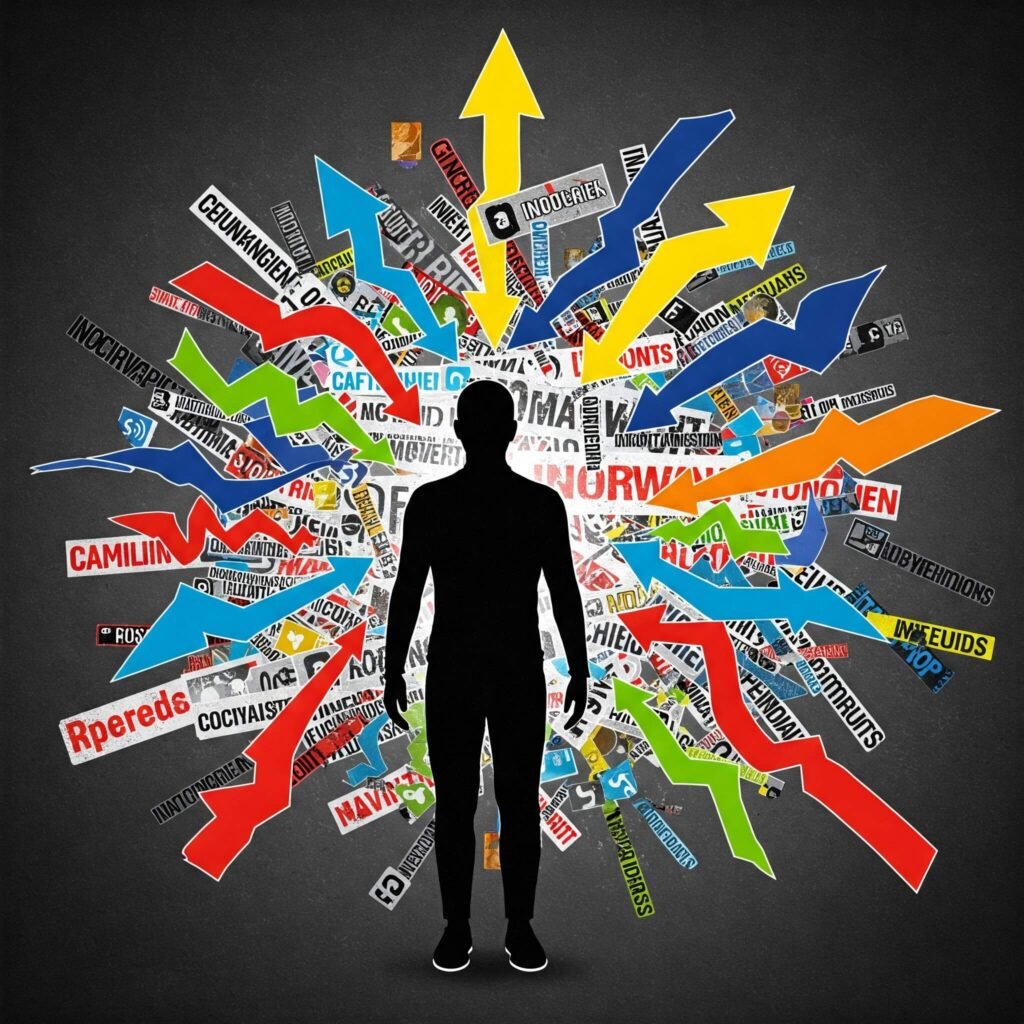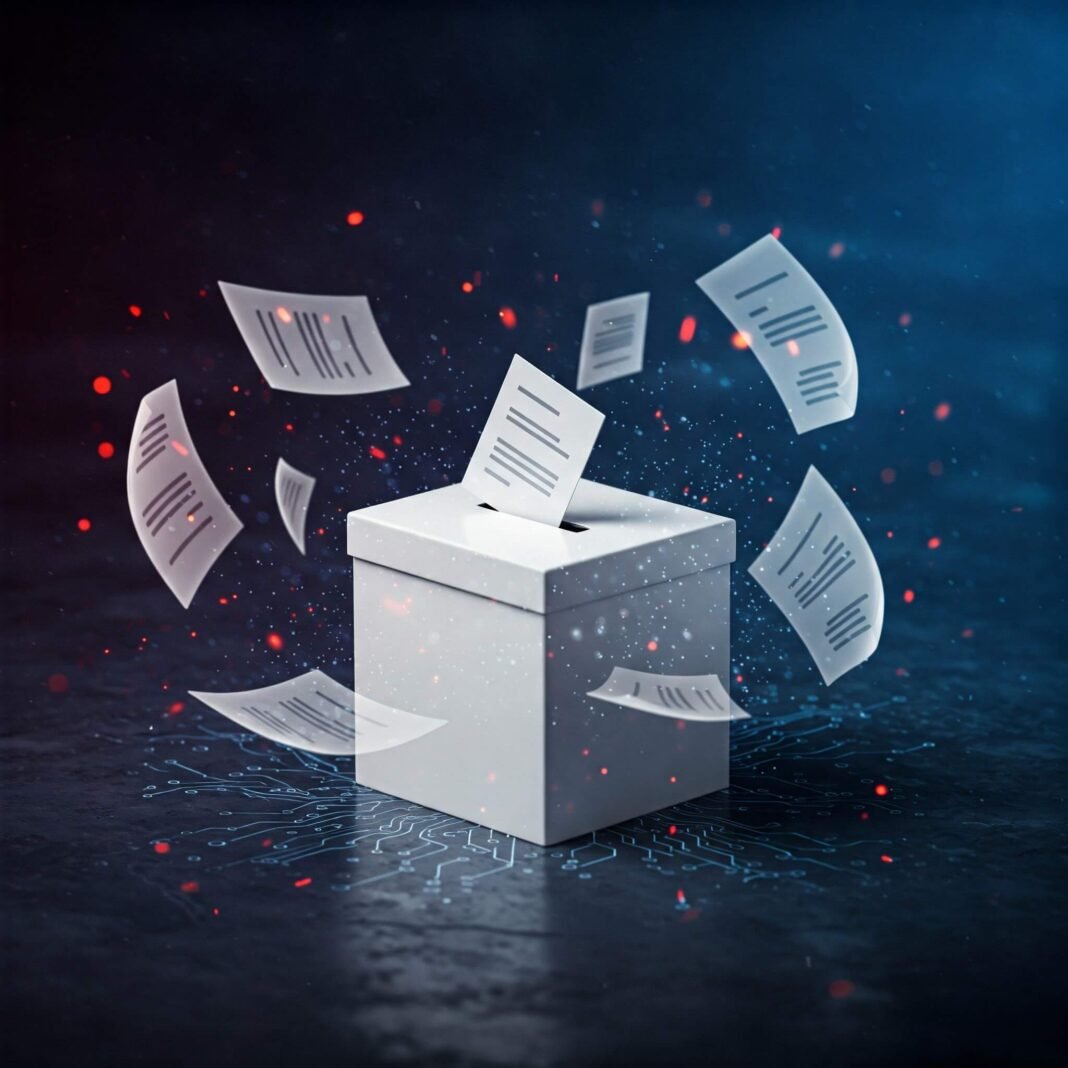The flow of information is the lifeblood of modern democracy. In an era where information travels at lightning speed, the unexpected release of confidential documents – often referred to as “leaks” – has become a potent, albeit controversial, force. These disclosures can pull back the curtain on backroom dealings, reveal hidden agendas, or expose wrongdoing. But beyond the immediate headlines, how exactly how leaked documents could shift the election landscape? It’s a complex question with significant implications for candidates, campaigns, and, most importantly, voters.
Leaked documents can inject explosive, unvetted, and often highly strategic information directly into the political arena. Their impact isn’t just about the truth they might contain, but also about the timing of their release, the way they are framed by media and political actors, and how the public reacts. This can create ripples that turn into waves, potentially altering the course of an election seemingly overnight.
Let’s delve deeper into the mechanisms and consequences of how these disclosures could shift the election landscape.
How Leaked Documents Could Shift the Election Landscape: The Immediate Fallout
When sensitive documents leak, the first impact is often a media firestorm. News outlets scramble to report on the contents, analyze their significance, and get reactions from those involved. This intense focus immediately elevates the topic, often pushing other campaign narratives to the side.
- Domination of the News Cycle: A major leak can consume media attention for days or even weeks, making it difficult for campaigns to pivot or regain control of their message.
- Setting the Agenda: The contents of the leak dictate the conversation, forcing candidates to respond, defend, or go on the offensive. This can highlight weaknesses or create unexpected challenges.
- Shaping Public Opinion: Initial media framing and political reactions significantly influence how the public perceives the leaked information and the individuals/groups it concerns.
This immediate fallout demonstrates the raw power how leaked documents could shift the election landscape by hijacking the narrative and forcing a rapid response from all players.

Campaign Strategy Reimagined: How Leaked Documents Could Shift Election Tactics
For political campaigns, a significant leak is a crisis demanding an immediate strategic overhaul. It’s not just about damage control; it’s about adapting to a fundamentally changed environment.
- Crisis Management: Campaigns must quickly verify (or dispute) the authenticity of the documents, assess the potential damage, and craft a response. This can involve rapid communication shifts, press conferences, and deploying surrogates.
- Offense and Defense: Depending on who the leak implicates, campaigns may use it defensively (denial, deflection, attacking the source) or offensively (highlighting opponents’ alleged wrongdoing, calling for investigations).
- Resource Allocation: Dealing with a major leak diverts valuable time, money, and staff away from planned campaign activities like rallies, advertising, and grassroots organizing.
The strategic adjustments forced by leaks highlight a crucial way how leaked documents could shift the election landscape, compelling campaigns to react to external events rather than driving their own agenda.
The Erosion and Reinforcement of Trust: How Leaked Documents Could Shift the Election Landscape’s Foundation
Trust is a cornerstone of voter decision-making. Leaked documents can have a profound, and often contradictory, effect on the trust voters place in candidates, institutions, and the information they receive.
- Eroding Trust in Figures/Institutions: If leaks reveal corruption, hypocrisy, or incompetence, they can severely damage a candidate’s or party’s credibility, leading to a loss of trust among voters.
- Boosting Trust (in the source/information): Conversely, some voters might view leaks as acts of courageous transparency, increasing their trust in the leakers or the media outlets that publish the information, particularly if the leaks confirm existing suspicions.
- Increasing Skepticism Overall: The sheer volume and often unverifiable nature of leaked information, combined with the political spin surrounding it, can lead to general fatigue and skepticism among voters about all political information.
This complex interaction with public trust is a subtle but significant way how leaked documents could shift the election landscape by altering the fundamental relationship between candidates and the electorate.

Real-World Examples of How Leaked Documents Shifted Elections
History provides several compelling examples where leaked documents played a pivotal role in shaping political outcomes.
- The Pentagon Papers (1971): While not during a direct election cycle, the leak of this classified history of U.S. involvement in Vietnam by Daniel Ellsberg significantly eroded public trust in the government’s handling of the war, contributing to the political climate of the era and influencing subsequent elections. (See analysis by The National Archives: [Placeholder for link to National Archives or reputable historical site])
- WikiLeaks and the DNC Emails (2016): The release of emails from the Democratic National Committee leading up to the U.S. Presidential election fueled narratives of bias within the party, caused internal turmoil, and dominated media coverage during a critical campaign period. (See reporting by reputable news archives like The New York Times or BBC: [Placeholder for link to reputable news archive])
- Panama Papers (2016): While a global investigation, the leaks from the law firm Mossack Fonseca exposed offshore financial dealings of politicians and public figures worldwide, leading to resignations, investigations, and protests, influencing public perception of corruption and leadership in several countries. (See reporting by the International Consortium of Investigative Journalists (ICIJ)
These cases illustrate the tangible power how leaked documents could shift the election landscape by bringing hidden information to light with profound political consequences.

Navigating the Information Flood: What Voters Need to Know When Leaked Documents Could Shift the Election Landscape
Given the potential for leaks to influence elections, it’s crucial for voters to approach such information critically and thoughtfully. Here are some actionable takeaways:
- Verify the Source: Who leaked the documents? What is their motivation? Who is publishing them? Reputable news organizations often work to verify authenticity, but raw leaks can be unreliable.
- Consider the Context: When were the documents created? What was happening at that time? What is the context of their release now, particularly if timed strategically before an election?
- Look for Verification: Have the claims in the documents been corroborated by other evidence or independent reporting? Be wary of information presented without verification.
- Beware of Framing and Spin: Understand that both the leakers and political actors will attempt to frame the information in a way that benefits their agenda. Look for objective analysis.
- Seek Multiple Perspectives: Don’t rely on just one source for information about a leak. Read reporting from different news outlets with varying perspectives.
Approaching leaked information with a critical mindset is perhaps the most important tool voters have when how leaked documents could shift the election landscape through the power of information.
Conclusion: Staying Informed in a Leaky World
Leaked documents are a powerful, disruptive force in modern politics. They have the capacity to expose truths, fuel scandals, reshape campaign strategies, and significantly shift the election landscape by impacting public opinion and trust.
While leaks can sometimes serve the public interest by revealing hidden wrongdoing, they also carry risks of manipulation, disinformation, and overwhelming complexity. As voters, understanding how leaks function and approaching them with healthy skepticism and a commitment to verification is essential for navigating the information age and making informed decisions at the ballot box.




